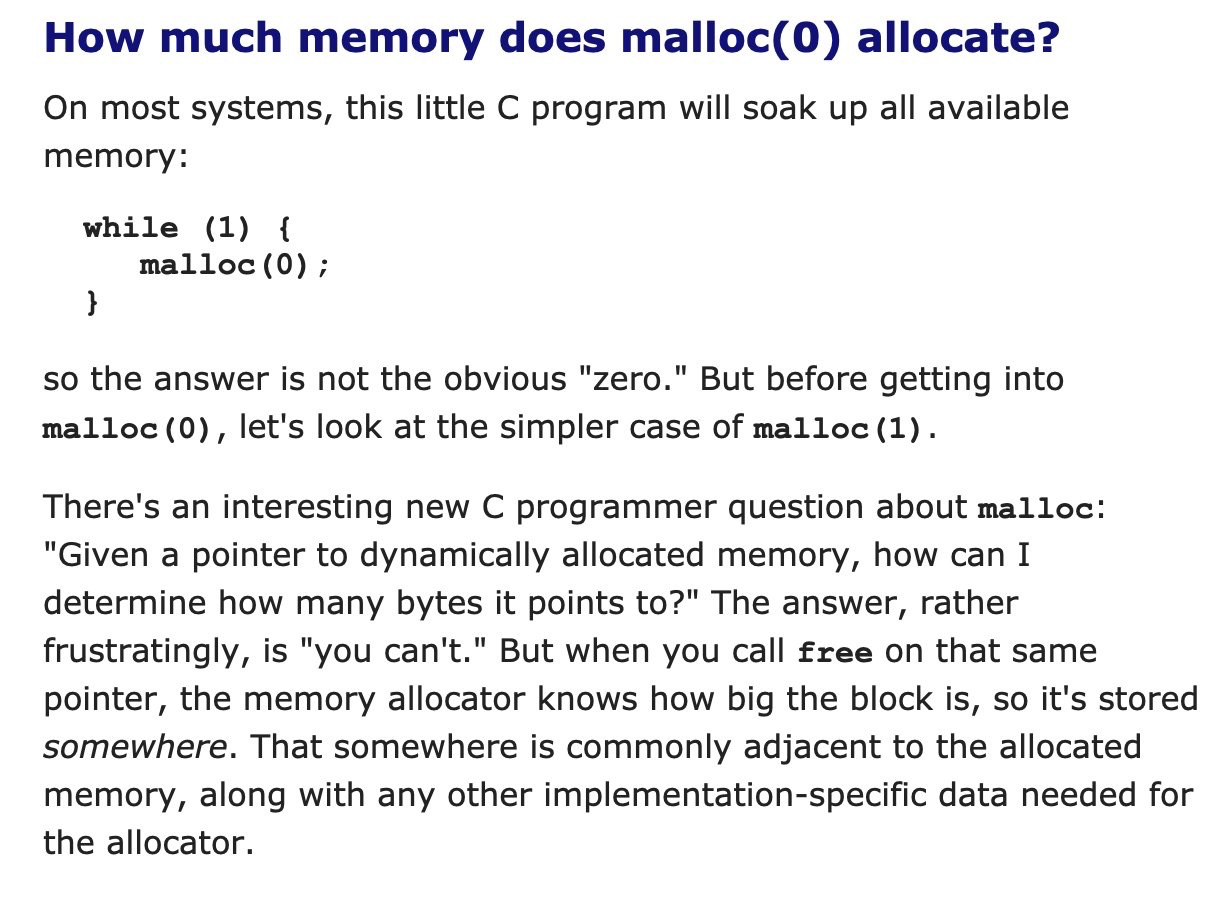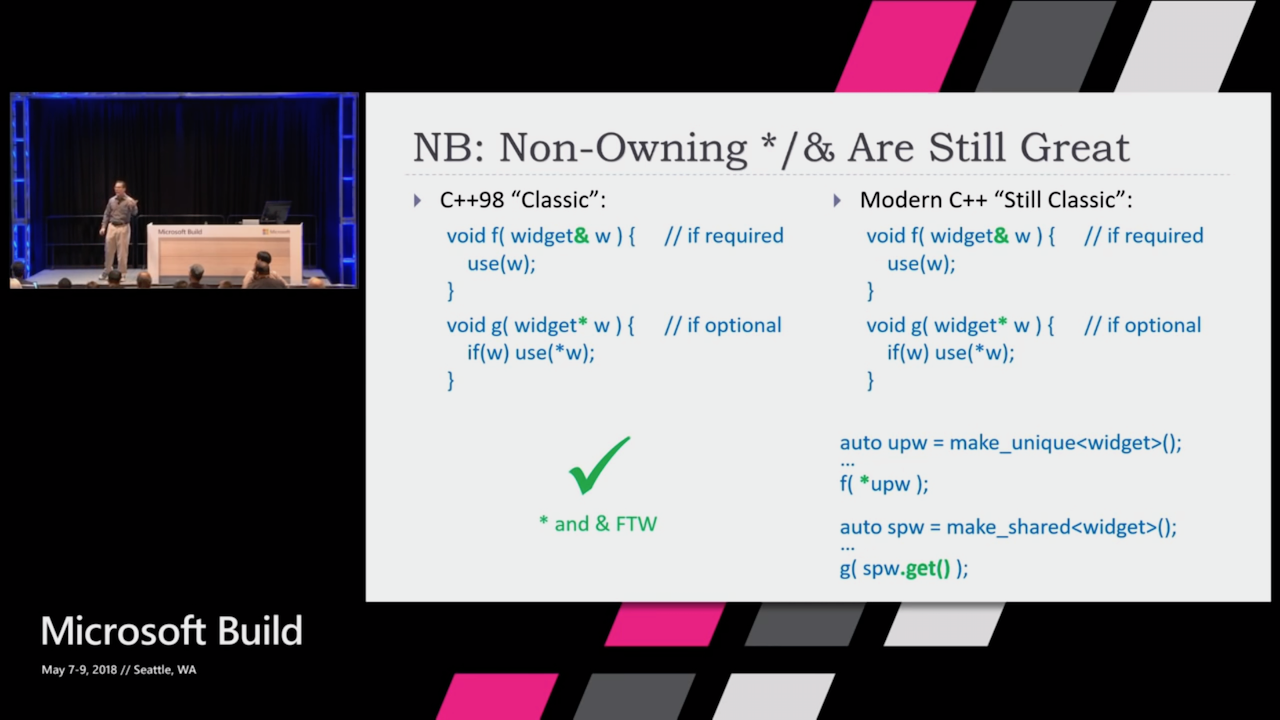Meeting 2 August 2018
Follow-up: Four Habit-Forming Tips to Faster C++
“Cache member-variables and reference-parameters”
The original version in the article doesn’t even work without aliasing:
1template<typename T>
2class complex {
3 complex& operator*=(const complex<T>& a) {
4 real = real * a.real - imag * a.imag;
5 // BUG: real is changed, then used in subsequent calculation
6 imag = real * a.imag + imag * a.real;
7 return *this;
8 }
9};
The recommended version from the article:
1template<typename T>
2class complex {
3 complex& operator*=(const complex<T>& a) {
4 T a_real = a.real, a_imag = a.imag;
5 T t_real = real, t_imag = imag;
6 real = t_real * a_real - t_imag * a_imag;
7 imag = t_real * a_imag + t_imag * a_real;
8 return *this;
9 }
10};
Proposed “economy” version:
1template<typename T>
2class complex {
3 complex& operator*=(const complex<T>& a) {
4 const auto real_this{real}; // modified by our code
5 const auto real_a{a.real}; // may be modified if aliased
6 real = real * a.real - imag * a.imag;
7 imag = real_this * a.imag + imag * real_a;
8 return *this;
9 }
10};
Proposed “easy” version:
1template<typename T>
2class complex {
3 complex& operator*=(complex<T> a) {
4 const auto self{*this};
5 real = self.real * a.real - self.imag * a.imag;
6 imag = self.real * a.imag + self.imag * a.real;
7 return *this;
8 }
9};
C++ Quiz by Shafik Yaghmour via Twitter
In C
— @shafik@hachyderm.io (@shafikyaghmour) July 31, 2018
malloc(0)
and C++
new int[0]
What's the behavior of these expressions
A. Both return NULL/nullptr
B. Both return an address that's invalid to dereference
C. Behavior can vary
D. Undefined behavior
Vote 1st, answer 👇#cplusplus #programming #CppPolls #CPolls
C:
1malloc(0)
C++:
1new int[0]
What’s the behavior of these expressions?
- Both return NULL/nullptr
- Both return an address that’s invalid to dereference
- Behavior can vary
- Undefined behavior
In C99 and C11 malloc(0) is allowed to return either NULL or pointer that is not valid to dereference:
In C++ we get back an array with zero elements:
Allocating 0 bytes
 |
|
Metashell GUI
- Code (MIT)
- Metashell “The goal of this project is to provide an interactive template metaprogramming shell.” (GPL-3.0)
Ericsson CodeCompass
CodeCompass is a software comprehension tool for large scale software written in C/C++ and Java
- Code (GPL-3.0)
Expect the Expected, by Andrei Alexandrescu
CppCast: Parallel Ranges with Chris DiBella
Pacific++ 2017: Toby Allsopp - An Introduction to the Proposed Coroutine Support for C++


Qt and the Coroutines TS
- Post by Jeff Trull
- Post by Jesús Fernández
- Boost.Asio coroutine support
- Coroutine Theory Series, by Lewis Baker
- cppcoro: Coroutine Utilities, by Lewis Baker
- How Coroutines Work, by Kirit Sælensminde
Exploiting Coroutines to Attack the “Killer Nanoseconds”
In this work, we compare and contrast the state-of-the-art approaches to reduce CPU stalls due to cache misses for pointer-intensive data structures. We present an in-depth experimental evaluation and a detailed analysis using four popular data structures: hash table, binary search, Masstree, and Bw-tree. Our focus is on understanding the practicality of using coroutines to improve throughput of such data structures.
Herb Sutter: How to Adopt Modern C++17 into Your C++ Code






Unity (“jumbo”) builds
AKA: amalgamated, or Single Compilation Unit (SCU) builds.
- A Guide to Unity Builds by Viktor Kirilov
- Support for Unity (Jumbo) Files in Visual Studio 2017 15.8 (Experimental)
- Chromium instructions and GoogleDoc
- Other tools:
const auto* versus const auto for Pointer Types
